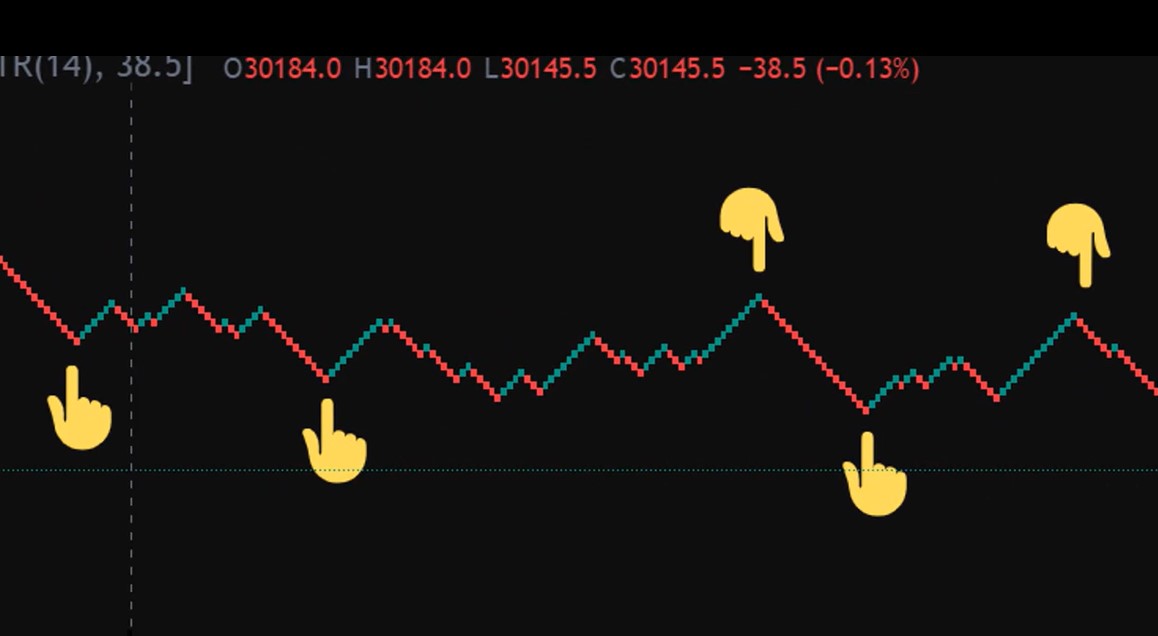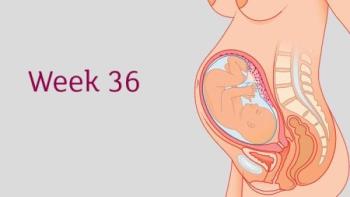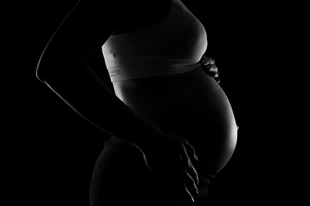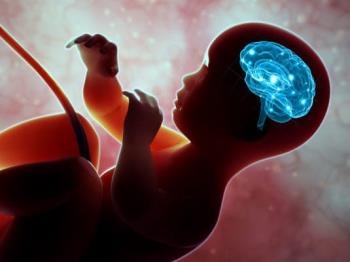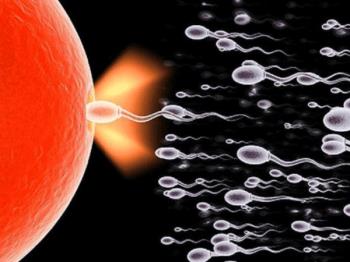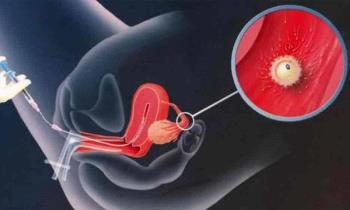The mother's 34-week fetus was truly a baby developing senses at a blistering speed. At this time, helping your baby develop weight and ensuring that the baby continues to grow up healthy until the finish date is the "vital" duty of pregnant mothers.
When the fetus is 34 weeks old, how much did your baby develop?
This month, you're in the rush to finish. That is why the baby's weight will increase very quickly. Now I have the size of a round melon. The baby's average length is about 45cm and weighs about 2.2kg.
The indicators of the fetus at 34 weeks of age need to know clearly in order for the baby's growing progress to meet the standards or not?
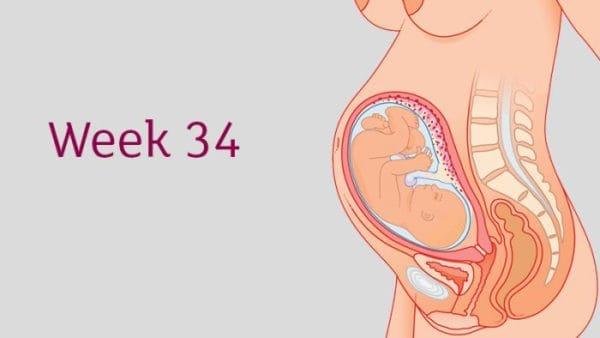
Things you need to pay attention to to help the 34-week fetus develop well
6 key indicators that mothers need to master to evaluate the health and development of a 34-week fetus including bipolar diameter, femur length, fetal weight, head circumference, abdominal circumference and ratio length from head to toe.
Fetal index 34 weeks + 0
Bipolar diameter (BPD): 79-91 mm, average 85mm
Femur Length (FL): 60- 72mm, average 65mm
Waist circumference (AC): 277-326mm, average 302mm
Head Circumference (HC): 297-333mm, 315mm average
Estimated Weight (EFW): 1973-2781g, average 2377g
Fetal index 34 weeks +1
Bipolar diameter (BPD): 83-95 mm, average 89mm
Femur Length (FL): 60- 72mm, average 65mm
Waist circumference (AC): 277-330mm, average 304mm
Head circumference (HC): 298-334mm, average 316mm
Estimated Weight (EFW): 1999-2817g, average 2408g
Fetal index 34 weeks +2
Bipolar diameter (BPD): 80-92 mm, average 86mm
Femur Length (FL): 61- 73mm, average 66mm
Waist circumference (AC): 278-333mm, average 306mm
Head Circumference (HC): 299-335mm, average 317mm
Estimated Weight (EFW): 2025-2854g, average 2439g
Fetal index 34 weeks +3
Bipolar diameter (BPD): 80-92 mm, average 86mm
Femur Length (FL): 61- 73mm, average 66mm
Waist circumference (AC): 278-336mm, average 308mm
Head circumference (HC): 300-336mm, average 318mm
Estimated Weight (EFW): 2051-2890g, average 2470g
Fetal index 34 weeks +4
Bipolar diameter (BPD): 80-92 mm, average 86mm
Femur Length (FL): 61-73mm, average 66mm
Waist circumference (AC): 278-340mm, average 309mm
Head circumference (HC): 301-338mm, average 319mm
Estimated Weight (EFW): 2076-2927g, average 2502g
Fetal index 34 weeks +5
Bipolar diameter (BPD): 80-92 mm, average 86mm
Femur Length (FL): 61-73mm, average 66mm
Waist circumference (AC): 278-343mm, average 311mm
Head Circumference (HC): 302-339mm, 320mm average
Estimated Weight (EFW): 2102-2963g, average 2533g
Fetal index 34 weeks +6
Bipolar diameter (BPD): 81-93 mm, average 87mm
Femur Length (FL): 62- 74mm, average 67mm
Waist circumference (AC): 279-347mm, average 313mm
Head Circumference (HC): 303-340mm, average 321mm
Estimated weight (EFW): 2129-3000g, average 2564g
Your baby's indicators may fluctuate slightly from the above average, so mothers should not be too worried because these are only relative numbers to track the normal development of the baby.
What nutrition helps mothers improve the weight of a 34-week-old fetus?

Things you need to pay attention to to help the 34-week fetus develop well
The index table above as well as the latest antenatal check-up will help mothers understand exactly the weight of the fetus. If the baby is below the prescribed level too much, the mother needs to consult carefully with the doctor about the reason why the fetus is slow to gain weight.
In addition, adjusting to a reasonable diet will help mothers improve the baby's weight better.
Some tips can speed up the mother's 34-week fetal weight such as:
Increase protein in daily meals
A healthy pregnant mother will need from 50-100g of fish meat daily. In these last months, the appropriate amount of protein will help the baby develop skeletal muscles faster, and at the same time, the mother can store the mammary glands to produce more milk after birth.
Protein-rich foods that are very beneficial for your baby to gain weight well at this time include:
Small shrimp and fish
Beef
Deep sea fish
Fresh milk
Fresh chicken eggs
Add to the menu nutritious drinks for pregnant mothers
From 32 weeks onwards, amniotic fluid deficiency can happen to any pregnant woman. Supplementing plenty of water is the best way for mothers to avoid the risk of lack of amniotic fluid. The body can store enough water to reduce constipation, bloating and bloating in the last month of pregnancy.
Certain nutritious drinks are often able to provide a rich supply of vitamins and minerals. This is also a simple but effective secret for the fetus to develop well at this stage.
Therefore, mothers should increase drinking :
- Fresh milk
- Orange juice
- Soymilk
- Sugar cane juice (2-3 times / week)
- 1 glass of coconut water daily
- Cereal
Alternating drinking during the week will help mom's appetite and easier to absorb.
Has your 34 week fetus turned around at this point?
97% of babies will begin to turn and move down the pelvis to prepare for the time of delivery in the final weeks of pregnancy.
Most of the time, the top will take place in this 34th week. When you go to the doctor, the doctor will help you determine if your baby is in a place that is convenient for normal delivery. However, there are also up to 3-4% of babies still "determined" in the reverse position at this time.
From 34-37 weeks is also the time when many babies will continue to move to reach the desired destination for the birth process. But if the baby is still in reverse, there will be many options for the mother to consult with the doctor.
- Use methods of rotating the fetus as directed by a doctor through some exercises or with an obstetrician's intervention.
- The mother can still give birth if all factors are converged, such as the baby is not too big, the fetus is in a straight buttock position, the mother's pelvis is large enough to help the baby come out, ...
- If the child's position is too difficult, the optimal method that the doctor will discuss with the mother is cesarean section.
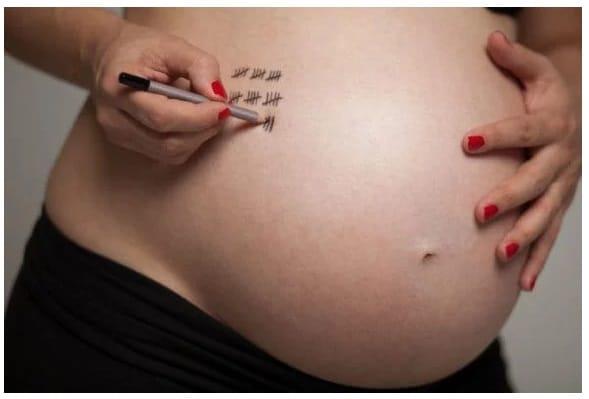
Things you need to pay attention to to help the 34-week fetus develop well
34 weeks fetus will pedal less or pedal more?
It is not as important as stepping a little or a lot is not as important as stepping on the “standard” number of times to ensure that the fetus is still developing well.
At this time, when the baby's body grows rapidly and the mother's uterus becomes more and more cramped, it is a joy to feel the fetus kicking hard and much is a joy for mothers.
Therefore, the mother just needs to note that the baby needs at least 10 movements in an hour. If the baby kicks less than this number of times, mothers should stimulate the baby to pedal by ways such as drinking cold water, eating sweets, listening to music, ...
If within 2 hours, the number of pregnancies decreased significantly, the mother should not hesitate, but should go to the doctor immediately to avoid unfortunate cases.
Mom do not forget to monitor the contractions to prevent premature birth
The contractions will appear more in the third trimester. This is the basic step for the uterus to learn to review the upcoming labor cycle. Therefore, mothers need to distinguish between physiological contractions and labor contractions .
Physiological Goat
It only takes place from 30 seconds-2 minutes. May appear often but not cause pain. Lie to rest and change your posture slowly, the mound will disappear. However, mothers need to avoid overwork, sudden change of positions or having sex when there are contractions.
Labor mounds
Is a mound that occurs many times and with a longer, lasting frequency. Combined with that is other signs such as shady abdominal pain, bleeding, mucus, ... The mother needs to pay attention to ensure timely treatment, to avoid the case of premature babies having to be born with many termites. danger.
See more:
34-week fetus kicked a lot: When should mom be worried?
Handbook for pregnant women: 34th week of pregnancy




